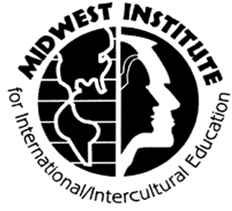This module was funded by the CGS and developed for the Midwest Institute for International/Intercultural Education’s workshop, “Human Migrations, Global Networks and Leadership.”
 Name: Janis Kendziorski
Name: Janis Kendziorski
College: Delta College
Discipline: Interdisciplinary course for faculty
Course Title and Number: Sustainability Across the Curriculum, a faculty EDU course
Module Title: Sustainability Across the Curriculum.
(International/intercultural implications of sustainability will be addressed throughout the course.)
Narrative Description of the Module:
This is a 1-credit course for faculty in all disciplines. Meets for 10 weeks, including late start and early finish, to minimize disruption to faculty teaching obligations.
The course will give faculty an overview of environmental, social, and economic sustainability issues on an individual, societal, and global basis. Faculty will compare and contrast the impact of environmental issues around the world, and critically evaluate proposed solutions. Emphasis will be placed on our international responsibility to future generations.
As a final goal of the course, each faculty participant will prepare a global sustainability module to infuse into their own class.
Educational Objectives:
- Understand the interconnectedness of environmental, social, and economic issues with local and global implications.
- Explore what individuals, communities, businesses, and nations can do to ensure that future generations can live a healthy and prosperous life.
- Explore the United Nations Sustainable Development Goals; what are the 17 goals, are they achievable, what are the hurdles, who will be most affected, who should bear responsibility, how can we help?
- Explore recent international agreements and the importance of international cooperation in addressing global sustainability issues.
Outline of Lectures/Discussions Used to Implement the Module:
The 10-week course will be organized into the following weekly sessions, with 3 face-to-face meetings and 7 online weekly assignments:
- Face-to-face session: introductions, goals of course, overview of environmental, social, and economic sustainability, United Nations Global Sustainable Development Goals; systems thinking, ecological principles.
- Food and water. Food security, meat consumption, fair trade, water pollution, fresh water scarcity, plastics in oceans, ocean acidification, coral reefs. Who is most affected? Who should bear responsibility? How can we help?
- Population. Population growth, consumerism, waste, community, transportation, urban common spaces, environmental refugees, racial justice, gender equity, wage equity. Who is most affected? Who should bear responsibility? How can we help?
- Energy and climate change. Energy demands, carbon footprint, renewable energy sources, causes and predictions for climate change. Who is most affected? Who should bear responsibility? How can we help?
- Economics of sustainability. Brief history of international agreements, importance of international cooperation, the business case for sustainability.
Online discussion of 3-5 learning outcomes related to global sustainability that all students should achieve, regardless of discipline. Each faculty participant will identify 1-2 outcomes in the course they are revising that they believe will help students achieve the broader outcomes identified by the group.
- Face-to-face session: share outcomes and discuss project proposals
- Participants work on project development; resources shared online
- Participants work on project development; resources shared online
- Participants work on project development; resources shared online
- Face-to-face session: presentation of projects
Listing of Audio-Visuals Used to Implement the Lesson Plans:
https://www.youtube.com/watch?v=o08ykAqLOxk How We Can Make the World a Better Place by 2030, TED Talks, Michael Green. Sept. 2015, London, Eng.
Anderson, Ray. “So Right So Smart”. Narrated by Daryl Hannah.
Student Reading Assignments Used to Implement the Lesson Plans:
- Choices for Sustainable Living. Northwest Earth Institute. Portland, OR: Premier Press, 2018. Participants will be required to purchase this text (approximately $35).
- Rowe, Debra. “Education for a Sustainable Future.” Science Vol 317, 20 July 2007: pg323-324. http://wjsmith.faculty.unlv.edu//smithtest/UNIVERSITYSUSTAINABILITY.pdf
- Sustainable Development Goals. United Nations Sustainable Development Goals Knowledge Platform. https://sustainabledevelopment.un.org/topics/sustainabledevelopmentgoals
(17 United Nations Sustainable Development Global Goals and 169 targets)
Student Evaluation/Testing:
Assessment will include the following:
Participation in Week # 1 group session | 10% |
Participation in weekly discussion boards, weeks # 2, 3, 4, and 5, based on readings and/or videos | 40% |
Participation in Week #6 group session | 10% |
Preparation of a module/method to infuse sustainability into a course they teach; a rubric will be established with time-lines for completion of: Proposal Outline Completed project | 5% 10% 15% |
Presentation of module to the class | 10% |
Resources (Bibliography) Used to Develop-Implement the Module:
United Nations. “Transforming our World: the 2030 Agenda for Sustainable Development.” Sustainable Development Goals Knowledge Platform. Accessed Dec. 1, 2018. https://sustainabledevelopment.un.org/post2015/transformingourworld
Burns, Heather. “Teaching for Transformation: (Re) Designing sustainability courses based on ecological principles.” Journal of Sustainability Education, 2, March 2011.
USGCRP, 2017: Climate Science Special Report: Fourth National Climate Assessment, Volume I [Wuebbles, D.J., D.W. Fahey, K.A. Hibbard, D.J. Dokken, B.C. Stewart, and T.K. Maycock (eds.)]. U.S. Global Change Research Program, Washington, DC, USA, 470 pp., doi: 10.7930/J0J964J6. https://science2017.globalchange.gov/downloads/CSSR2017_FullReport.pdf
Levi, Lennart and Rothstein, Bo. “Universities Must Lead on Sustainable Development,” University World News 9 Nov. 2018, www.universityworldnews.com/article.php?story=20181106131352348.
Klein, Naomi. This Changes Everything: Capitalism vs. the Climate, New York: Simon & Schuster, 2014
Hawken, Paul. Drawdown: The Most Comprehensive Plan Ever Proposed to Reverse Global Warming, New York: Penguin Books, 2017.
Portney, Kent. Sustainability, Cambridge, MA: The MIT Press, 2015.
Hoekstra, Arjen Y. The Water Footprint of Modern consumer Society, New York: Routledge, 2013.
Bryfonski, Dedria. Global Sustainability: Opposing Viewpoints, Farmington Hills, MI: Greenhaven Press, 2016.
Juniper, Tony. What’s Really Happening to Our Planet?, New York: Penguin Random House, 2016.
Chambers, Ian and Humble, John. Plan for the Planet: A Business Plan for a Sustainable World, Burlington, VT: Gower Publishing Company, 2012.
Bekefi, Tamara and Epstein, Marc J. “21st Century Sustainability”. Strategic Finance, Nov. 2016, pp.29-37.
American Association for the Advancement of Science. What We Know: The Reality, Risks, and Response to Climate Change. Web.PDF, 2014, accessed Nov. 24, 2018.
Royal Society and US National Academy of Sciences. Climate Change: Evidence and Causes. Web, 27 February 2014, accessed Nov. 24, 2018.